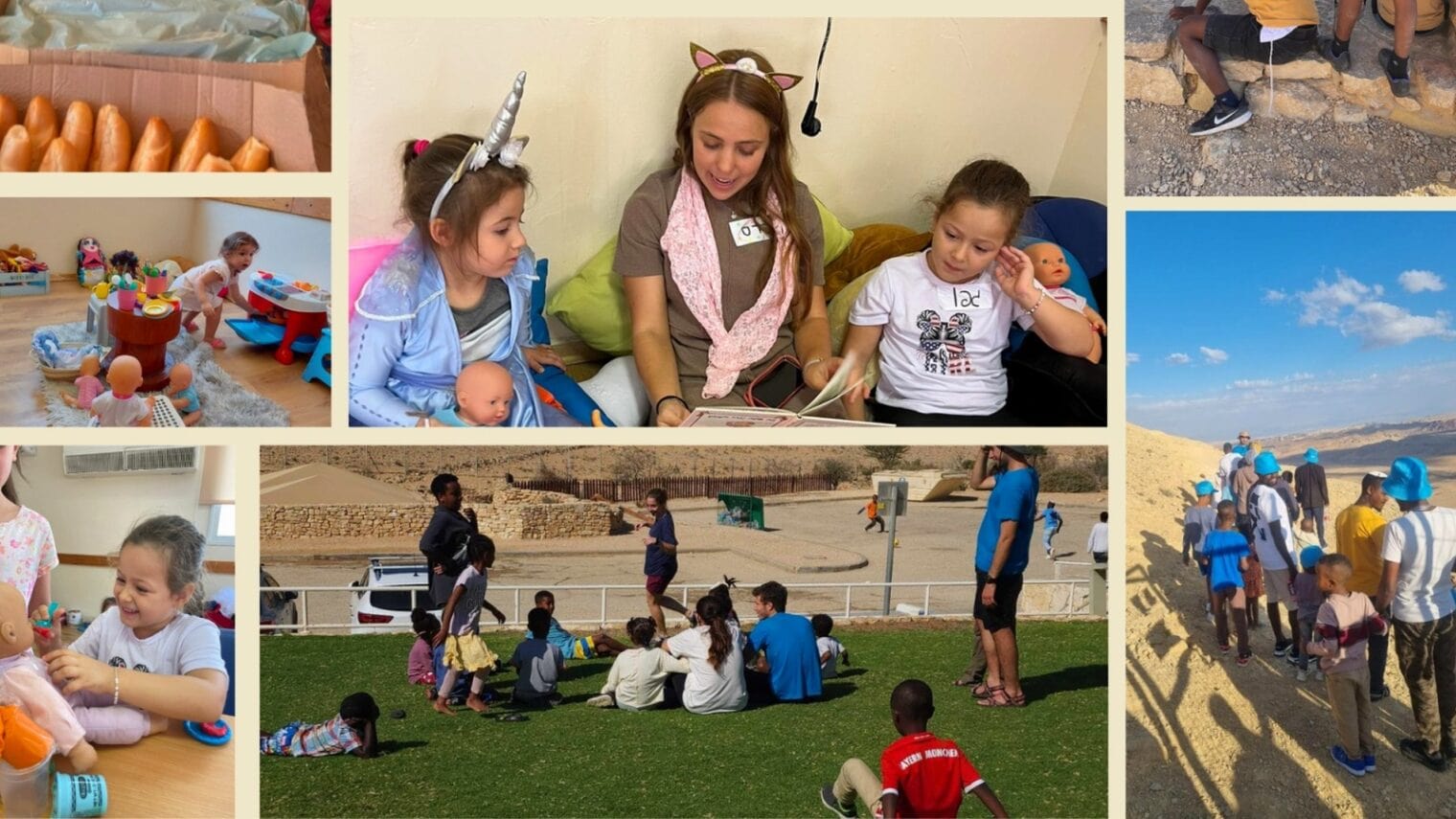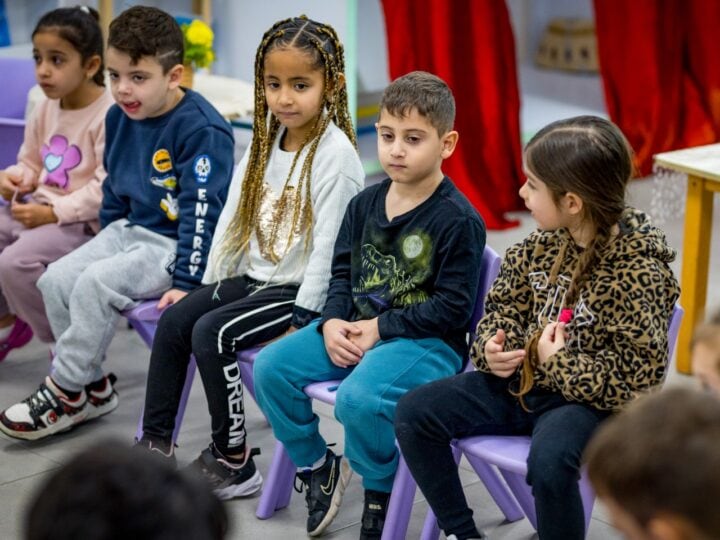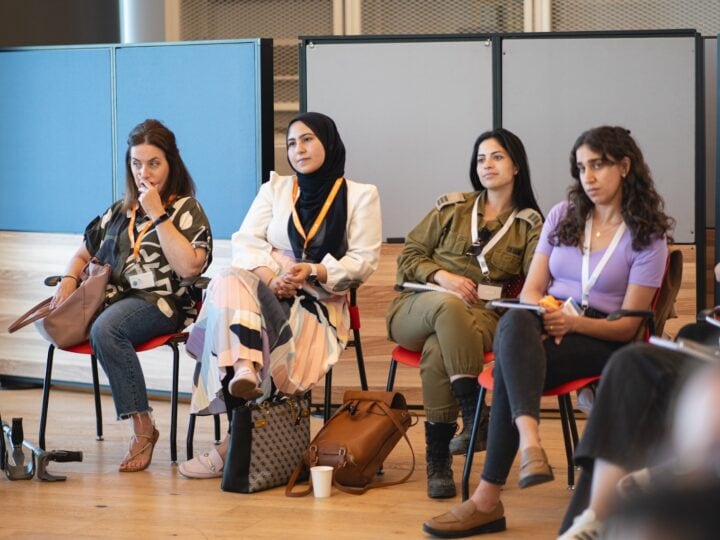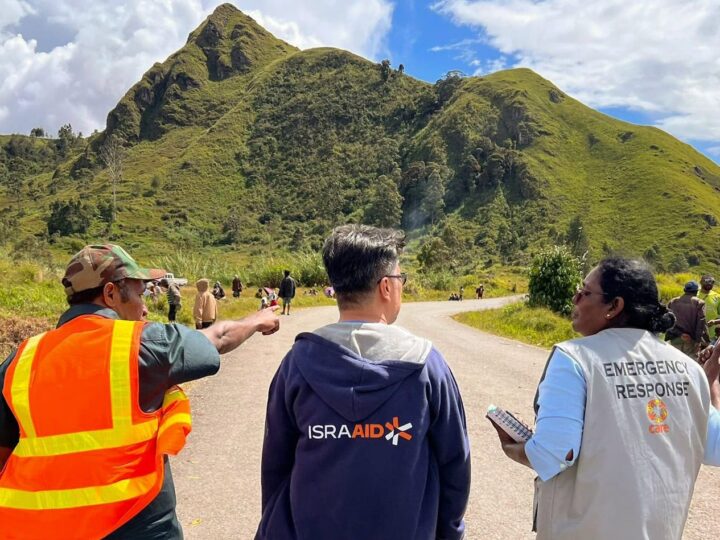The brutal war that Hamas began on October 7 is pushing Israel into an unprecedented internal refugee crisis.
Hundreds of thousands of people have been displaced from Gaza border towns in the southwest and Lebanon border towns in the north.
Managing this fast-growing and quite chaotic disaster is a difficult task, fragmented among the government’s National Emergency Management Authority, regional authorities, nonprofits and ad-hoc volunteer groups.
The number affected is unclear, with estimates ranging wildly from 200,000 to 500,000, and changing daily.
According to the Israel Hotel Association, more than half the 56,000 hotel rooms on its roster are now occupied by evacuated citizens, financed by the state.
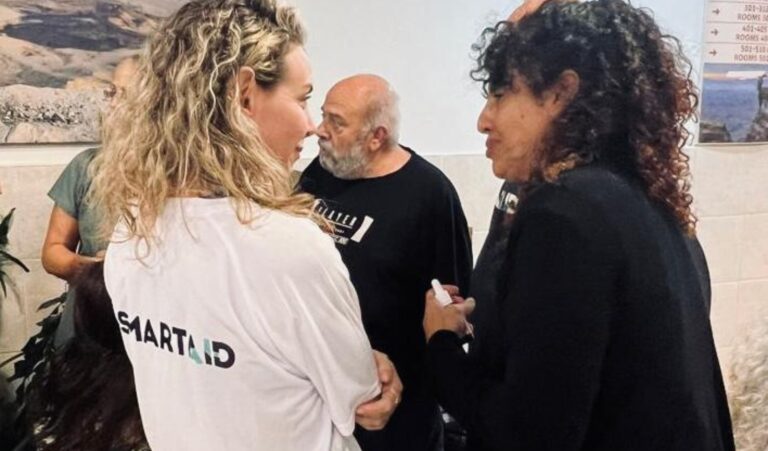
Smaller hotels and B&Bs are also taking in refugees and seeking funds to continue sheltering and feeding them. The Israel Trauma Coalition, Herzog Hospital’s Metiv Israel Center for the Treatment of Psychotrauma and others are providing evacuees with psychological counseling and support.
Israel Trauma Coalition head Taly Levanon reports: “There are over 200 hotels and several communities within each hotel. … Difficulties are beginning to surface – financial anxiety, refusal to vacate rooms. It is a pressure cooker that is overflowing.”
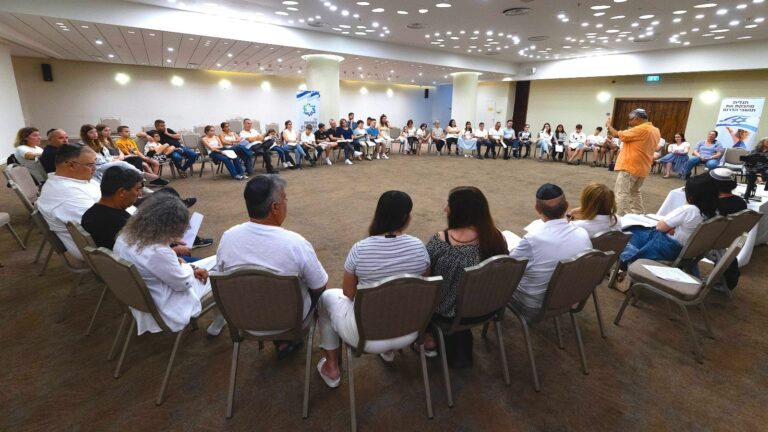
Many refugees are staying in university dorms, since the fall semester that was supposed to begin October 18 has been pushed off indefinitely.
Maccabi World Union’s Kfar Maccabiah complex in Ramat Gan is erecting a tent city to house 1,000 Israelis fleeing their homes. First arrivals are expected on Thursday, and another tent city is likely to be set up in Eilat.
Organizations such as Shalva in Jerusalem and Beit Issie Shapiro in Ra’anana are harboring hordes of refugees with disabilities, while Yad Sarah opened its fully accessible Jerusalem hotel to displaced individuals with disabilities and the elderly.
Communities across Israel have taken in families fleeing the war zones, housing them privately or in local high schools, and providing food, clothing and other basic necessities. There’s a new app, Find A Safe Place, helping to match displaced Israelis with private hosts.
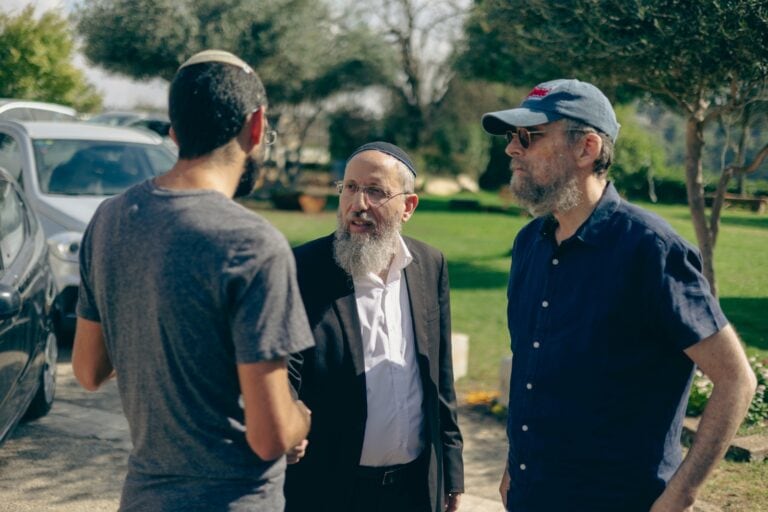
Countless nonprofit organizations and ad-hoc groups are sending meals and essential items to evacuees wherever they are, providing supervised activities for children as well as physical and emotional care.
Organizations helping refugees
Jewish National Fund-USA has evacuated dozens of communities from the south and north.
The organization is raising $25 million to provide at least 20,000 Israelis with evacuation transport, housing, food, toiletries, clothing and crisis counseling; and assisting about 100,000 other southern residents and evacuees with children’s activities, clothing, food, medication, funerals, shivas, bar mitzvahs and other lifecycle events during the war.
“We were able to mobilize quickly because we’ve been in partnership and affiliation with the frontline communities in the frontier of Israel for over 15 years,” says Yoel Rosby, National Projects for, JNF-USA’s Israel operations.
“We started planning ahead in times of peace so that we had the infrastructure ready. In the first hours [after the attacks], we already had four communities on the way and staff to accommodate them,” says Rosby.
Evacuees are housed at JNF-USA’s Alexander Muss High School in Israel campuses in Hod Hasharon and Beersheva. The organization is housing thousands more in field schools and guesthouses.
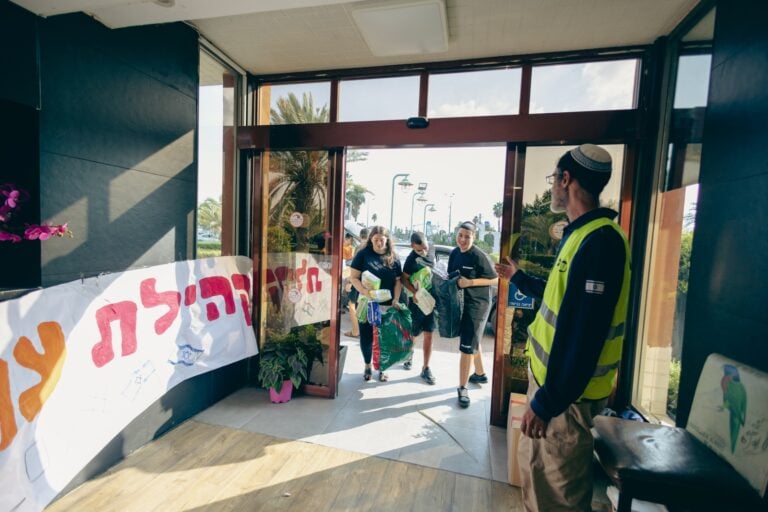
JNF-USA and its partner Lauder Employment Center in Beersheva established a distribution center providing evacuees with toys, pacifiers, blankets, bedding, toiletry items and more.
“We are giving evacuees the warmest possible embrace, from a bed to sleep in to education for their children, to making sure they have healthy meals and psychological and emotional support they need,” Rosby tells ISRAEL21c.
NATAN Worldwide Disaster Relief is operating three medical clinics and two dental clinics for evacuees at several hotels. The medical clinics are run in cooperation with two national HMOs, Clalit Health Service and Maccabi Health Service.
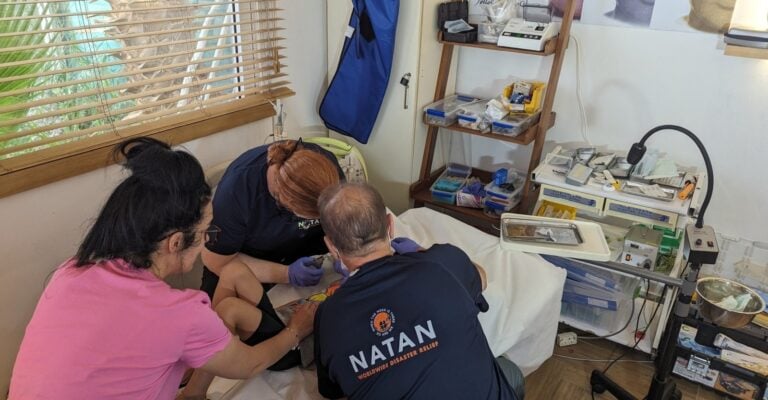
“For nearly 20 years, we’ve gone from disaster to disaster around the world and it’s almost always the same paradigm: We begin with medical aid and then do an assessment of what else is needed, often trauma care,” says NATAN Chairman Daniel Kahn.
“That’s what we are doing here at home now for people displaced by the war, many of them staying in places that are very remote from medical services.”
In a crisis, Kahn notes, “health needs are greater because the body reacts to psychological stress. There are also many refugees with chronic diseases and they are suffering without their medication.”
NATAN’s initial call for volunteer medical personnel was answered within hours by almost 200 Israelis, some of whom took time from their jobs or come to help at the end of their regular shifts elsewhere.
The Society for the Protection of Nature in Israel is sheltering hundreds of evacuated southerners at its field schools in Mitzpeh Ramon and Eilat.
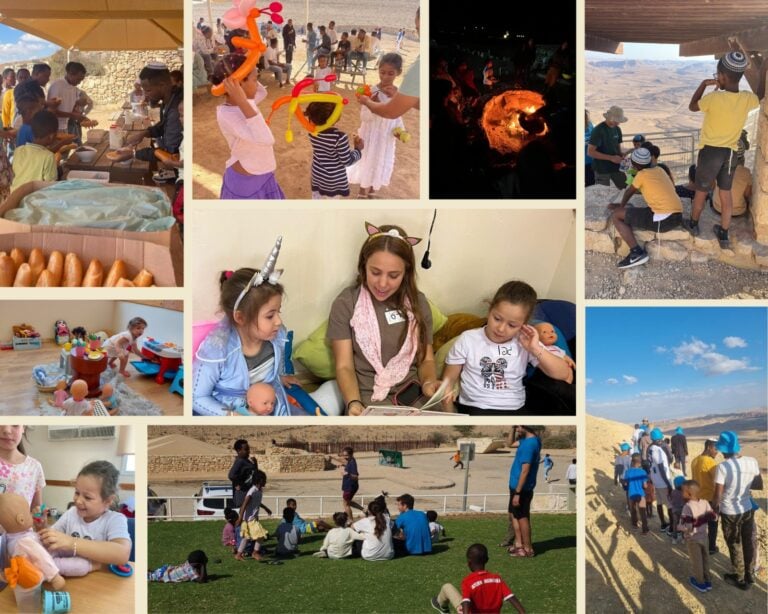
SPNI Partnerships and Development Director Jay Shofet says everyone receives, for free, three meals a day and a safe place to sleep. Trained counselors lead organized activities for children.
“We have been inundated with requests for help and are prioritizing those families with young children or elderly parents. We are accepting requests directly from families while also coordinating with other NGOs and social-service agencies to identify families that need us as part of the national humanitarian effort to provide shelter to every person in their time of need.”
Shofet says the Eilat Field School is hosting large groups of Ethiopian immigrants. “They were stressed because although the food was plentiful, there was no injera, the Ethiopian sourdough bread which is an essential staple of the cuisine. Within a few hours, the field school director found a caterer who is now delivering injera daily.”
At Mitzpeh Ramon Field School, SPNI opened a medical clinic staffed by a volunteer doctor to provide care for the refugees. Each field school also has a Mother and Baby Room “where new mothers can find all types of baby supplies and food, warm companionship and advice from staff and peers,” says Shofet.
Keren Kayemeth L’Israel-Jewish National Fund (KKL-JNF), a separate entity from JNF-USA, started an emergency relief fund to support a range of initiatives during the war.
Among these projects are hosting survivors and evacuees in KKL-JNF Forest and Field Centers and other guesthouses, and creating respite activities for children and youth displaced from their homes.
HIAS, the international Jewish humanitarian organization that serves refugees and asylum seekers in more than 20 countries, launched emergency operations directly and through partners for Israeli populations affected by the war.
HIAS provides displaced families with hygiene supplies, blankets, school supplies, family “dignity kits,” cash and vouchers, mental health and psychosocial support, and recreation for children, as well as information and referrals, in a variety of languages, to additional social services.
AMIT, which runs all Sderot schools, keeps tabs on all 4,333 evacuated students – some of them sheltered in other AMIT schools in Israel. Two temporary learning centers are set up for evacuated children in Eilat and the Dead Sea. (The Eilat municipality alone has absorbed some 60,000 Israeli refugees.)
Students are in daily contact with their teachers, and AMIT-TV broadcasts resilience and trauma-processing sessions for teachers every morning.
AMIT also distributed 270 computers to Sderot teachers who could not take their computers with them when they evacuated, and opened a mental-health hotline for teachers and parents.
The World Zionist Organization has appealed to Jews across the world to give empty apartments they own in Israel to evacuees. The My Home is Your Home initiative gives the WZO legal responsibility for these apartments during the crisis period.
“We want to thank the Jews in Israel and in the diaspora who joined the initiative and to everyone who provides a roof over the heads of their brothers in Israel who now need a home where they can find safety, calmness, and shelter from the fierce fighting. We are one people and united we will win,” said WZO Chairman Yaakov Hagoel.
IsraAID volunteers are providing psychosocial support to refugees.
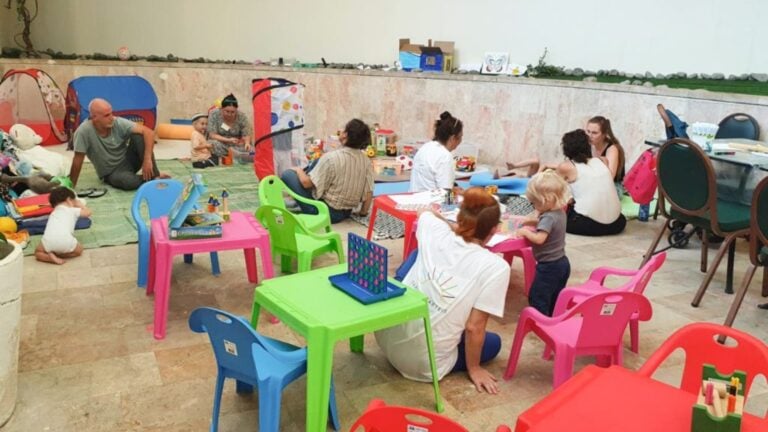
Yehudit Henig-Roth, an Israeli therapist specializing in trauma care, couples counseling, family counseling, and adolescent and early childhood care, is among the IsraAID crew volunteering in Dead Sea hotels.
“We had to establish a space that could allow parents to sit with their children and just be, to see and feel tiny signs of routine, to see that their child was alright; to see him play, laugh, run, and build – to see that he’s still a child; to see that the adults he meets will do everything they can to make the experience better for him and that even if he can’t return to that naive paradise of childhood other experiences can be restored,” she writes.
Henig-Roth recalls that one night the IsraAID team “saw a father and daughter sitting behind us on a bench. She is a mother of three. He is a grandfather of six. They were physically saved from the inferno, but their stories and that father’s sad eyes haunt me. ‘Who will protect these little souls?’ he asked me tearfully.”
No home to return to
Nobody can predict how big this internal refugee crisis will get or how long it will last.
And when the war is over, not all evacuees will have a home to go back to.
Hamas terrorists burned and looted houses in Gaza-area kibbutzim and villages. Additional homes in outlying cities including Ashkelon have been severely damaged by missiles.
Some of the refugees never had a real home. The Jewish Agency for Israel has evacuated 1,697 newly arrived immigrants from Ethiopia, Ukraine and Russia from southern absorption centers to safer areas of the country, and is providing them with respite activities. JAFI is now evacuating hundreds more from the north.
The Israel Agricultural Association’s Committee for Foreign Workers evacuated foreign farm laborers and provided them with food, basic supplies and online connectivity so that they could communicate with their families back home.
Those who wish to continue working have been placed on farms in safer areas, those who need respite were transferred to appropriate accommodations, and those wanting to return to their homeland are receiving assistance to do so.
JNF-USA’s Yoel Rosby says that plans are in motion for the day after this war is over.
“We already have communication and strategic planning for ensuring, with many partners on the ground, a more prosperous and beautiful future for the affected communities. it’s never too early to try to begin the healing process of rebuilding a stronger Israel,” Rosby says.




